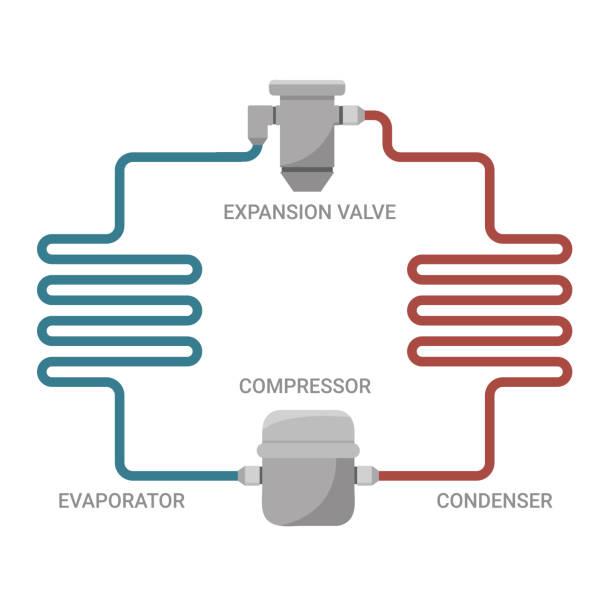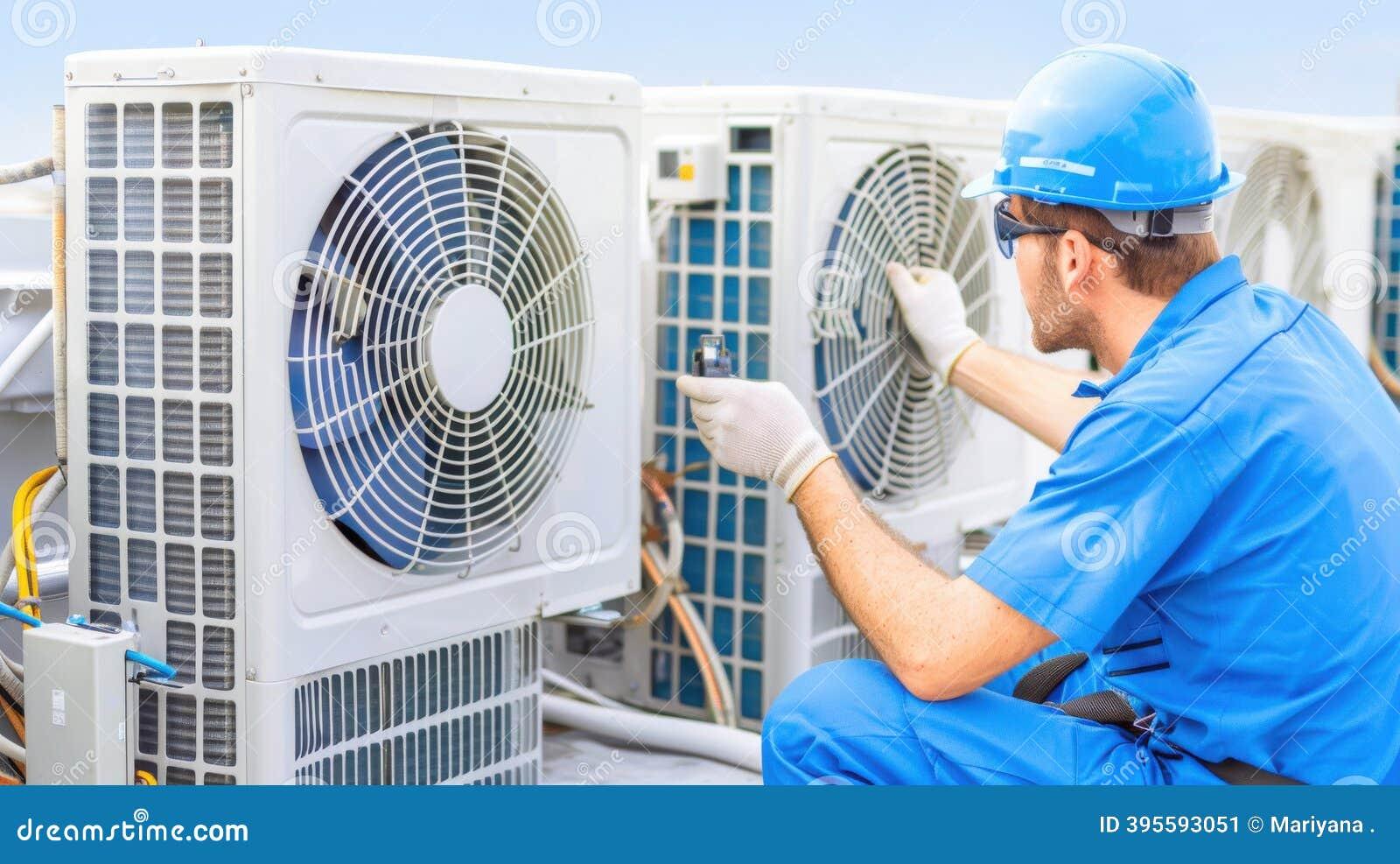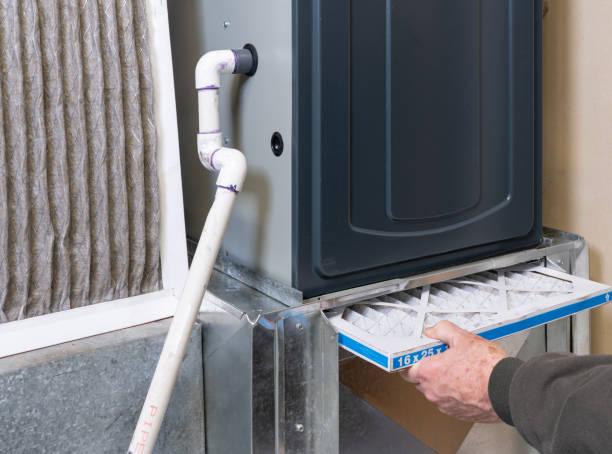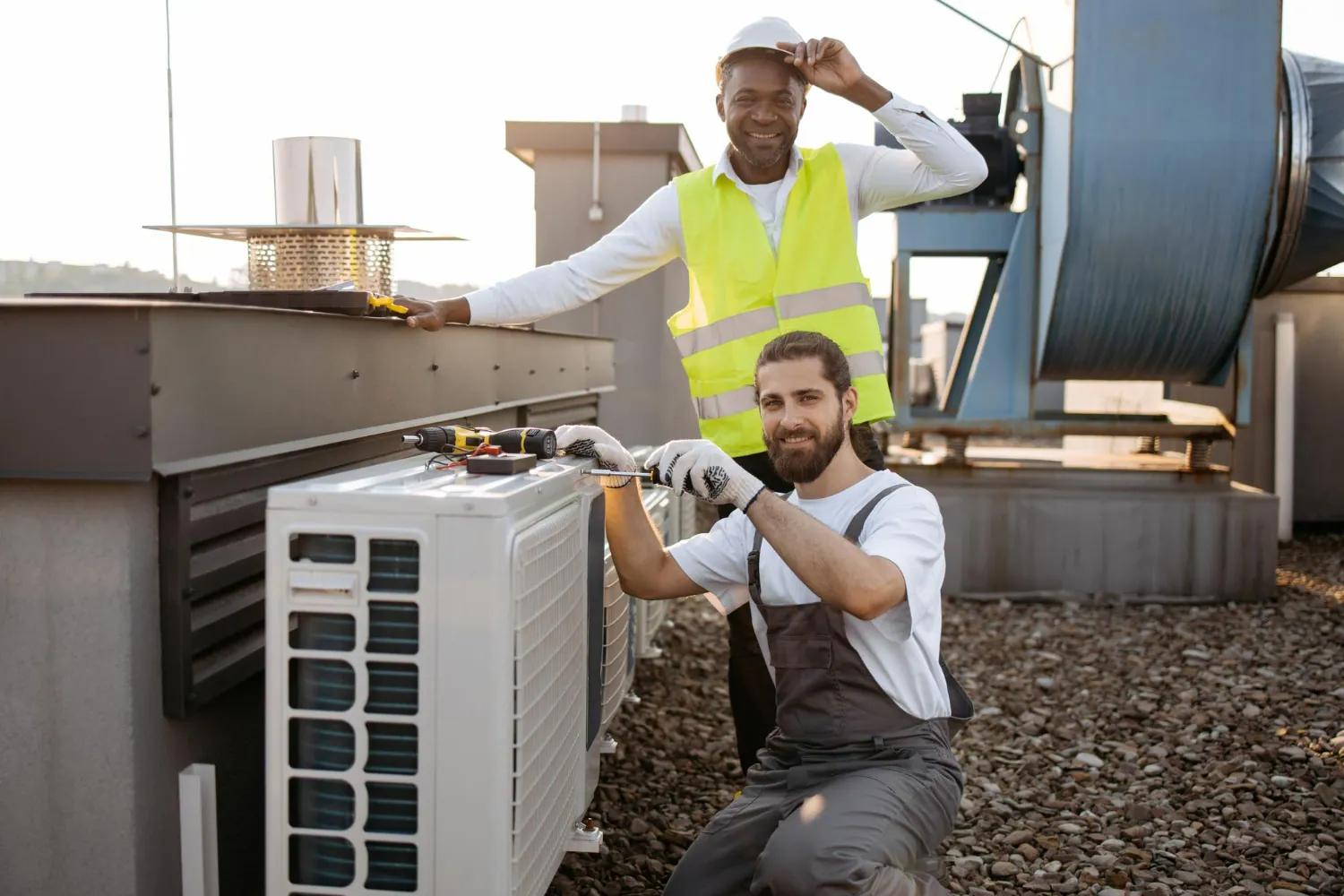When your home’s heating or cooling system starts acting up, it never happens at a convenient time. Houston homeowners know this reality all too wellair conditioners fail during July heat waves, and furnaces quit on the coldest winter nights. The good news? Many common HVAC problems can be identified and sometimes resolved with basic troubleshooting before you pick up the phone. Understanding when you can handle an issue yourself and when professional HVAC repair is necessary can save you time, money, and unnecessary stress.
This comprehensive guide walks you through the most frequent home air repair issues, provides actionable troubleshooting steps, and helps you make informed decisions about your heating and cooling system. Whether you’re dealing with inadequate cooling, strange noises, or skyrocketing energy bills, you’ll find expert insights that empower you to take control of your home comfort.
Understanding Your Home’s HVAC System
Before diving into troubleshooting, it’s essential to understand how your HVAC system operates. Your home’s heating, ventilation, and air conditioning system is a complex network of components working together to maintain comfortable indoor temperatures year-round.

How Your AC and Heating Work Together
Most modern homes use a central HVAC system with a furnace or heat pump for heating and an air conditioner for cooling. These systems share critical components including ductwork, the thermostat, and often the blower motor. According to the U.S. Department of Energy, heating and cooling account for approximately 48% of the energy use in a typical home, making your HVAC system the largest energy expense for most households.
The air conditioning system works by removing heat from indoor air and transferring it outside, while the heating system does the opposite during colder months. Air flows through a series of ducts, passing through filters that remove dust, allergens, and particles. Understanding this interconnected system helps you identify where problems might originate.
Most Common HVAC Problems Homeowners Face
Through years of serving Houston residents, the technicians at 75 Degree AC have identified recurring issues that affect home comfort systems. Recognizing these problems early can prevent minor inconveniences from becoming major repairs.
Air Conditioner Not Cooling Properly
This is the number one complaint HVAC professionals receive, especially during summer months. When your AC runs continuously but fails to cool your home adequately, several culprits could be responsible:
- Refrigerant leaks: Low refrigerant levels significantly reduce cooling capacity and indicate a leak that requires professional attention
- Dirty condenser coils: Outdoor units accumulate dirt, grass clippings, and debris that restrict airflow and heat transfer
- Frozen evaporator coils: Often caused by restricted airflow from dirty filters or blocked return vents
- Failing compressor: The heart of your AC system, a malfunctioning compressor requires immediate professional service
A 2023 industry study found that 70% of inadequate cooling complaints stem from maintenance-related issues rather than equipment failure, highlighting the importance of regular system care.
Uneven Temperature Distribution
Do you have rooms that stay perpetually hot while others feel like ice boxes? Uneven temperature distribution frustrates homeowners and indicates underlying system problems. Common causes include:
- Leaking or poorly insulated ductwork losing conditioned air before it reaches certain rooms
- Incorrectly sized HVAC system unable to handle your home’s square footage
- Blocked or closed supply vents restricting airflow to specific areas
- Thermostat placement in a location that doesn’t accurately represent your home’s average temperature
Addressing these issues often requires professional ductwork inspection and repair to restore balanced comfort throughout your home.

Strange Noises from Your HVAC Unit
Your HVAC system should operate relatively quietly. Unusual sounds signal specific mechanical issues:
- Grinding or squealing: Indicates worn bearings in the blower motor requiring lubrication or replacement
- Banging or clanking: Suggests loose components inside the unit or ductwork
- Hissing: Often points to refrigerant leaks or high compressor pressure
- Clicking: Normal during startup, but continuous clicking may indicate a failing relay or control issue
- Buzzing: Could signal electrical problems, loose parts, or a failing contactor
Never ignore strange noisesthey’re your system’s way of communicating that something needs attention before complete failure occurs.
High Energy Bills
When your utility bills spike without explanation, your HVAC system is often the culprit. The Environmental Protection Agency estimates that homeowners can save up to 30% on energy costs through proper maintenance and timely repairs. Factors contributing to increased energy consumption include:
- Dirty air filters forcing the system to work harder to circulate air
- Aging equipment operating below optimal efficiency levels
- Refrigerant leaks causing the compressor to run longer cycles
- Thermostat malfunctions resulting in unnecessary heating or cooling
- Duct leaks allowing up to 30% of conditioned air to escape
Thermostat Malfunctions
Your thermostat acts as the command center for your entire HVAC system. Modern smart thermostats offer enhanced control, but any thermostat can develop issues:
- Incorrect temperature readings due to poor placement or faulty sensors
- Failure to communicate with the HVAC system properly
- Dead batteries preventing system operation
- Programming errors causing unexpected temperature changes
- Wiring problems interrupting the connection to your heating and cooling equipment
DIY Troubleshooting Steps You Can Take
Before scheduling professional service, homeowners can perform several diagnostic checks that might resolve common issues or at minimum provide valuable information to your HVAC technician.
Check Your Air Filter First
This simple step resolves approximately 40% of HVAC performance complaints. A clogged air filter restricts airflow, causing numerous problems including reduced cooling capacity, frozen coils, and increased energy consumption. Follow these guidelines:
- Locate your filter (usually in the return air duct or air handler unit)
- Remove and hold it up to lightif you can’t see through it, replacement is necessary
- Replace filters every 30-90 days depending on household factors like pets, allergies, and usage
- Choose the correct MERV rating (8-13 for most homes) balancing filtration and airflow
Investment in quality filters pays dividends through improved indoor air quality and system longevity.

Inspect Your Thermostat Settings
Surprisingly, many service calls result from thermostat setting errors rather than equipment failures. Verify these basics:
- Mode is set correctly (COOL for air conditioning, HEAT for furnace operation)
- Fan setting is on AUTO rather than ON (continuous fan operation wastes energy)
- Temperature setpoint is appropriate for your desired comfort level
- Battery replacement if display appears dim or blank
- Programming schedule matches your current routine
Clear Debris Around Your Outdoor Unit
Your outdoor condenser unit requires adequate airflow to function efficiently. Maintain at least two feet of clearance around the unit by:
- Removing leaves, grass clippings, and debris from around the base
- Trimming back vegetation that encroaches on the unit
- Gently rinsing the exterior fins with a garden hose (with power off)
- Ensuring the unit sits level on its pad to prevent refrigerant circulation problems
Check Circuit Breakers and Power
Loss of power to HVAC components can mimic more serious problems. Before assuming equipment failure:
- Check your electrical panel for tripped breakers dedicated to HVAC equipment
- Verify the outdoor disconnect switch near your condenser hasn’t been accidentally turned off
- Examine the furnace or air handler power switch (often mistaken for a light switch)
- Replace blown fuses if your system uses them
When to Call a Professional HVAC Technician
While DIY troubleshooting can resolve minor issues, certain problems require professional expertise, specialized tools, and technical knowledge. Understanding this distinction prevents dangerous situations and costly mistakes.
| DIY-Friendly Tasks | Requires Professional Service |
|---|---|
| Replacing air filters | Refrigerant leaks or recharging |
| Cleaning outdoor unit exterior | Electrical repairs or wiring issues |
| Adjusting thermostat settings | Compressor or motor replacement |
| Resetting tripped breakers | Ductwork repair or modification |
| Clearing drain line clogs (minor) | Gas furnace repairs (safety risk) |
| Removing debris from outdoor unit | System not turning on at all |
Emergency situations requiring immediate professional attention include:
- Gas smell near furnace (evacuate and call emergency services immediately)
- Burning odors or visible smoke from HVAC equipment
- Water leaking extensively from indoor unit
- Complete system failure during extreme weather conditions
- Ice buildup on outdoor unit or refrigerant lines
At 75 Degree AC, licensed technicians respond quickly to emergencies with same-day service availability throughout Houston and surrounding areas. Our team handles complex diagnostics and repairs that homeowners cannot safely or effectively perform themselves.

Preventive Maintenance: Stop Problems Before They Start
The most effective home air repair strategy is preventing problems before they occur. According to the Air Conditioning Contractors of America, regular maintenance extends equipment lifespan by 40% and reduces emergency repair costs by up to 95%.
Seasonal Maintenance Checklist
Spring (Pre-Cooling Season):
- Schedule professional AC tune-up before temperatures rise
- Replace air filters and stock up for regular summer changes
- Test air conditioning operation on a moderate temperature day
- Clean outdoor condenser unit and surrounding area
- Verify thermostat cooling mode functions correctly
Fall (Pre-Heating Season):
- Schedule professional furnace inspection and service
- Replace filter before heating season begins
- Test heating system operation before cold weather arrives
- Check and replace carbon monoxide detector batteries
- Inspect vents and registers for obstructions
Year-Round:
- Change filters monthly during peak usage seasons
- Keep outdoor unit clear of debris
- Monitor energy bills for unusual increases
- Listen for unusual sounds indicating developing problems
- Ensure adequate clearance around indoor and outdoor equipment
Enrolling in a professional maintenance plan provides peace of mind through scheduled inspections, priority service, and discounted repair rates.
The Cost of Delaying HVAC Repairs
Many homeowners postpone addressing HVAC issues, hoping problems will resolve themselves or attempting to “make it through” one more season. This approach typically backfires in multiple ways:
Exponential Repair Costs: A $150 capacitor replacement ignored today can lead to a $2,500 compressor failure tomorrow. Small issues create stress on other components, cascading into major failures.
Energy Waste: Inefficient operation from unaddressed problems can increase monthly utility bills by 25-40%, quickly exceeding the cost of proper repairs.
Reduced Comfort: Struggling through Houston summers without adequate cooling affects health, productivity, and quality of life, particularly for vulnerable household members.
Shortened Equipment Lifespan: Systems forced to operate with existing problems experience accelerated wear, potentially cutting years off equipment that should last 15-20 years with proper care.
As HVAC industry expert Tom Davis notes, “The most expensive repair is always the one you don’t do. Addressing issues promptly protects your investment and prevents emergency failures at the worst possible time.”
Why Houston Homeowners Choose 75 Degree AC
When DIY troubleshooting reaches its limits, partnering with a trustworthy HVAC company makes all the difference. Since 2016, 75 Degree AC has built a reputation as Houston’s premier choice for honest, expert service.

What sets us apart:
- Licensed, Experienced Technicians: Our team brings years of hands-on experience diagnosing and repairing all HVAC system types and brands
- Transparent Pricing: We provide detailed, upfront quotes with no hidden fees or surprise charges
- Same-Day Service: Understanding that HVAC emergencies can’t wait, we prioritize rapid response throughout the Houston area
- Comprehensive Services: From emergency repairs to complete system installations, we handle all your heating and cooling needs
- Local Expertise: As a locally-owned company, we understand Houston’s unique climate challenges and their impact on HVAC systems
Our service areas include Houston, Katy, Sugar Land, The Woodlands, Cypress, Pearland, and surrounding communities. We’re available Monday through Friday 7 AM to 9 PM, Saturday 8 AM to 8 PM, and Sunday 8 AM to 5 PM, with emergency service available when you need it most.
Frequently Asked Questions
How often should I have my HVAC system professionally serviced?
Annual maintenance is recommended at minimumideally twice yearly with spring AC checkups and fall heating system inspections. Regular professional service extends equipment life, maintains efficiency, and catches problems before they become expensive emergencies.
Why is my air conditioner running constantly but not cooling my home?
Continuous operation without adequate cooling typically indicates low refrigerant levels from a leak, a failing compressor, frozen evaporator coils, or an undersized system for your home’s square footage. Professional diagnosis identifies the specific cause and appropriate solution.
What temperature should I set my thermostat to for optimal efficiency?
The Department of Energy recommends 78°F when home during summer and 68°F during winter. Each degree adjustment can change energy costs by 3-5%. Programmable or smart thermostats automatically adjust temperatures based on your schedule for maximum efficiency without sacrificing comfort.
Is it normal for my HVAC system to make noise?
Some operational sounds are normal, particularly brief clicking during startup and gentle airflow sounds. However, grinding, squealing, banging, continuous buzzing, or loud rattling indicates problems requiring professional attention. Never ignore unusual noises as they signal developing failures.
How long should my HVAC system last?
With proper maintenance, air conditioners typically last 15-20 years while furnaces can operate effectively for 15-30 years. However, systems without regular service often fail prematurely. Age, usage intensity, maintenance history, and installation quality all influence equipment longevity.
Can I replace my own thermostat?
Basic thermostat replacement is generally a straightforward DIY project for homeowners comfortable with simple wiring. However, smart thermostat installation, multi-stage systems, or homes with complex zoning may benefit from professional installation to ensure proper configuration and compatibility.
What causes ice to form on my air conditioner?
Ice buildup typically results from restricted airflow (dirty filter, blocked return vents, closed registers) or low refrigerant levels. Both prevent proper heat absorption by the evaporator coil, causing moisture to freeze. Never attempt to chip ice offturn off the system, allow complete thawing, and call for professional service.
Should I repair or replace my aging HVAC system?
Consider replacement if your system is over 15 years old, requires frequent repairs, has significantly increased energy bills, or faces a major component failure like a compressor. A new, energy-efficient system often pays for itself through reduced utility costs while providing improved comfort and reliability. Our technicians provide honest assessments to help you make informed decisions.
Take Control of Your Home Comfort Today
Understanding common HVAC problems and basic troubleshooting empowers Houston homeowners to maintain comfortable, efficient homes year-round. While many minor issues respond to simple DIY solutions, complex repairs and preventive maintenance require professional expertise to ensure safety, reliability, and optimal performance.
Remember these key takeaways:
- Regular filter changes and basic maintenance prevent most common problems
- Early intervention stops minor issues from becoming expensive emergencies
- Some repairs require professional knowledge, tools, and safety protocols
- Annual professional maintenance extends equipment life and maintains efficiency
- Energy costs increase significantly when problems go unaddressed
Don’t wait for complete system failure during Houston’s extreme weather. Whether you need immediate AC repair, heating system service, or preventive maintenance to keep your HVAC running smoothly, 75 Degree AC delivers the expert care your home deserves.
Call 75 Degree AC today at (713) 598-2737 or visit 75degreeac.com to schedule service. Experience the difference that honest, professional HVAC care makes for your Houston home.
